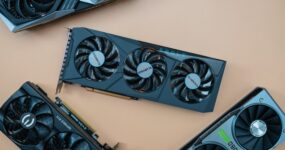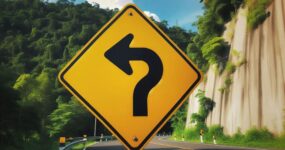
This is one of 38 winning blogs from the 2021 Blog4Dev competition, the World Bank Africa annual writing contest, inviting young people to weigh in on a topic critical to their country’s economic development. Blog4Dev winners responded to the question: How can young people work with their governments and civil society organizations to respond to the impact of COVID-19 and build a stronger post-pandemic economic and social system?
It was in 2015 during the summer. I was a second-year university student in Antananarivo, and I was volunteering for a project launched by UNESCO Madagascar and the Ministry of Education. I was tasked to give talks to public high school students on my experience of higher education: how I chose my subject degree, how I prepared for the future, my professional aspirations coupled with advice and encouragement. The goal was to inspire the students to pursue higher education and to prepare wisely for their future.
Three years later in 2018, as a final-year university student, I was volunteering as a workshop facilitator for 10th and 11th graders of underprivileged background in Nottingham in the UK. This financial literacy workshop Cheese Matters consisted of teaching personal finance management and sensitizing about budgeting and debts through experience sharing, games and simulation plays.
In both cases, according to the benefiting schools’ feedbacks, the projects had substantial benefits for their student support systems by guiding students and helping them develop good decisive behaviors. Both projects aimed at training the future generation of active citizens from underprivileged background in a specific area through only a few mentoring sessions.
In a larger scale, with more sophisticated follow-up plan, and more complex web of collaboration, I believe that similar mentoring program would contribute to transforming Madagascar towards a more modern, productive, internationally competitive, and industrially advanced country.
This large-scale mentoring program would have a specific goal of meeting the recommendation of the World Bank’s Africa Pulse report to invest in more modern economic sector to recover from the economic drawback of COVID-19 (coronavirus). It will mean aiming at building a highly-skilled manpower for one specific high-value sector. The idea is to have high school graduates develop specialized knowledge in this high-value sector. They will join directly the training and mentoring program of a company or an organization after graduation.
The role of the government would be to identify high-value sectors in Madagascar and map, or release bids for mapping, their specific needs for skills and jobs. It would create a targeted mentoring system, according to this map, and work with businesses and civil society organizations to have a specific mentoring group for each identified jobs or skills set. Skilled civilians and youths, in collaboration with the government and civil society, would volunteer to participate in the training and mentoring programs as mentors, organizers, or campaigners.
The government would launch campaigns for graduates to join those training programs instead of going into higher education. It would campaign to companies who are investing in those high-value sectors to create a mentoring program, and would provide financial support to civil society organizations for having their own training programs. Those organizations would also be mediators between those businesses in need of skills and those who have been trained and in search of a job. They would be the ones with the database of newly trained, skilled workers and collaborate with companies or entrepreneurs to meet their needs for manpower.
[“source=worldbank”]
| M | T | W | T | F | S | S |
|---|---|---|---|---|---|---|
| 1 | 2 | 3 | 4 | 5 | 6 | |
| 7 | 8 | 9 | 10 | 11 | 12 | 13 |
| 14 | 15 | 16 | 17 | 18 | 19 | 20 |
| 21 | 22 | 23 | 24 | 25 | 26 | 27 |
| 28 | 29 | 30 | 31 | |||



























